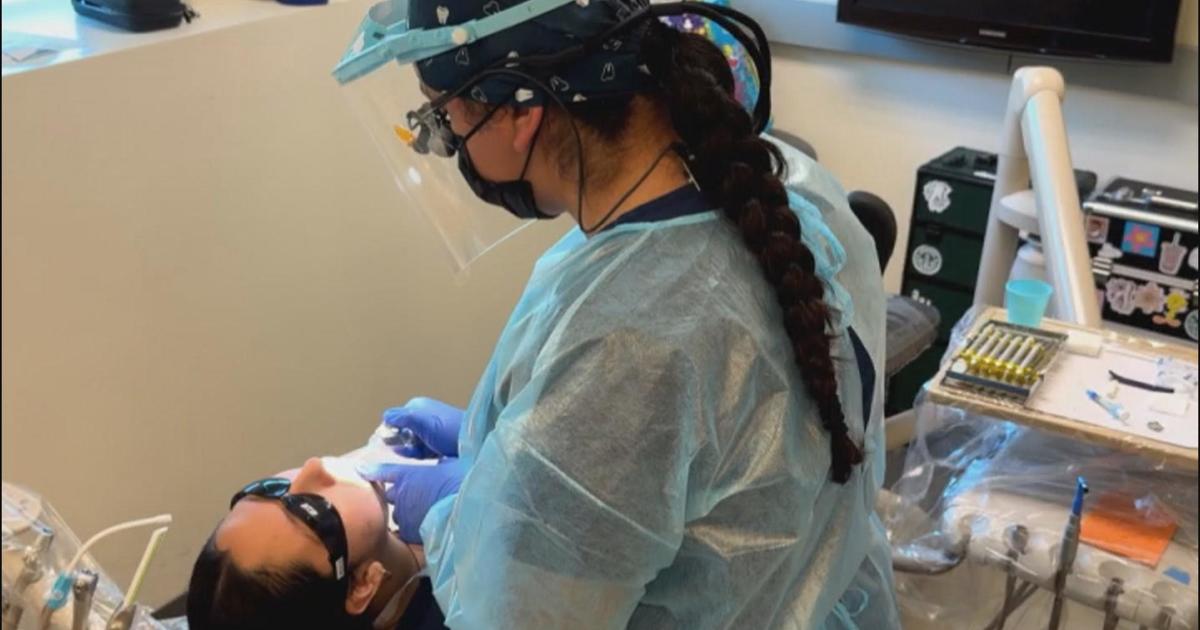Finger-Pointing, Lawsuits Likely To Follow 'Superbug' Scare
LOS ANGELES (CBS/AP) — With an antibiotic-resistant "superbug" outbreak connected to its facility, Ronald Reagan UCLA Medical Center stopped short of pointing a finger at the manufacturer of a medical instrument believed to have spread the deadly germs. The maker of the product was careful not to blame the hospital as it issued new cleaning instructions emphasizing meticulous manual sterilization.
Things may not be so polite once lawyers get involved.
Lawsuits are expected to follow the outbreak tied to two deaths and several infections, with the hospital and manufacturer pointing fingers at each other.
"That's exactly the kind of skirmishing you're going to see," said John Culhane, co-director of the Family Health Law & Policy Institute at the Widener University School of Law in Delaware. "The bottom line is that the two defendants will be hauled into court, and they'll be trying to do two things: One, they didn't do anything wrong; the second thing is to pin the blame on the other defendant."
Two people have died at UCLA, and five others have been infected with the bacteria known as carbapenem-resistant Enterobacteriaceae, or CRE, after undergoing similar endoscopic procedures to diagnose and treat pancreatic and bile-duct problems between October and January, hospital officials said. More than 170 other patients also may have been exposed.
The family of an 18-year-old student in grave condition from the bacteria is considering suing the endoscope's manufacturer, Olympus Corporation of the Americas, an arm of Japan's Olympus Corp, attorney Kevin Boyle said.
Attorney Pete Kaufman, who is representing an affected patient, told CBS2's Lisa Sigell the scope's manufacturer changed the device without changing the cleaning instructions.
"A change that you can market to doctors and say, 'Look what we've done. Now this is easier to use,' but they too often, I think, overlook the next step, which is, 'We've insured that this change doesn't make the device dangerous," Kaufman said.
That hard-to-clean medical instrument used on more than half a million people in the U.S. every year has become the focus of the investigation into the outbreak.
Olympus emphasized in a statement Thursday that meticulous manual sterilization is needed. The company said it was issuing new instructions and working with federal officials.
The U.S. Food and Drug Administration warned doctors Thursday that the device's complex design and tiny parts make complete disinfection extremely difficult. Even when cleaning instructions are followed, germs may linger, the FDA said. Between January 2013 and December 2014, the FDA received 75 reports involving 135 patients in the U.S. who may have been infected by tainted scopes.
The blame game has played out across the country where some patients are believed to have died from infections and hundreds of others have been shocked when notified they could have been infected with bacteria or a harmful disease from a medical instrument that was intended to help them.
In some cases, patients who weren't infected have sued for having to go through the unnerving process of being screened over months for diseases such as HIV and hepatitis they may have been exposed to.
Pittsburgh medical malpractice lawyer Brendan Lupetin currently represents more than 200 patients in a class-action suit against a Pennsylvania clinic that he said didn't properly clean its endoscopes. He envisions lots of lawsuits coming from the UCLA outbreak, with lawyers targeting both the hospital and Olympus and possibly third parties who may have been responsible for maintaining equipment used for cleaning and sterilization.
"It looks like someone dropped the ball," Lupetin said. "Whether it's the manufacturer or UCLA, you can almost guarantee there will be a number of lawsuits."
However, Lawrence Muscarella, a health care and sterilization expert, said he doesn't know of any lawsuits tied to outbreaks he's closely followed at four other U.S. hospitals.
Few lawyers have taken on the hospitals because it can cost hundreds of thousands of dollars to prepare a case, and there's no guarantee of success when it's hard to prove what caused an infection, he said. Doctors rarely list the infection as the cause of death, and some hospitals have said patients entered their facility with the antibiotic-resistant bacteria, a notion he dismisses.
"Proving causation is impossible," he said. "You can't prove you didn't have that organism when you came into the hospital."
Culhane, the law professor, said that if cases do proceed to court, defendants probably won't blame the victim for their role, as often happens in negligence cases. In these cases, the patient was probably unconscious.
(TM and © Copyright 2015 CBS Local Media, a division of CBS Radio Inc. and its relevant subsidiaries. CBS RADIO and EYE Logo TM and Copyright 2015 CBS Broadcasting Inc. Used under license. All Rights Reserved. This material may not be published, broadcast, rewritten, or redistributed. The Associated Press contributed to this report.)



